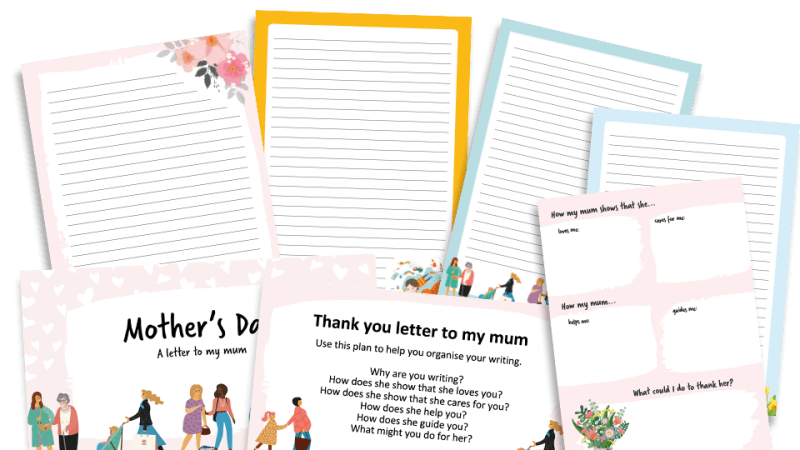Mental Health And Technology - The Other Side Of The Story

Young people’s mental health is more fragile than ever, it seems – and technology is a contributing factor. But could it also offer solutions? Sal McKeown investigates…

- by Sal McKeown

One of the most frightening statistics to come out of Mental Health Week in May was that anxiety, depression, self-harm and eating disorders, the four most common mental health issues faced by teenagers, have risen by 600% in the UK over the past ten years.
Many experts lay the blame on social media with its emphasis on selfies and image, the relentless drive to appear as a popular party animal and the temptation to reveal innermost thoughts to total strangers. However, former mental health champion Natasha Devon sees that technology has a crucial role for many young people. ‘Not every young person has the confidence to articulate themselves verbally, and feel safer opening up online or by text,’ she explains.
Self help
Many of the apps available in this area are aimed at health rather than education but the most useful for secondary age pupils are the new Innovation Labs apps – see box out, right – and My Journey, an app from the Google Play store. This app for young people with psychosis has a self-help tool to allow the user to rate their mood and get tips on improving their wellbeing. It includes information on prescribed medication, appointment and medication reminders and contact details for further advice and support, including contacts for emergency services (www.sabp.nhs.uk/eiip/app).
The advantage of apps is that they are downloaded to a mobile phone and so can be to hand day and night. Young people say they are more honest online than face to face and value the anonymity of apps because there is no trail to show which sites they have visited.
Some schools are in the business of making rather than using apps. Six girls from Stratford Girls’ Grammar School have reached the final of the 2016 Apps for Good competition with their app Lilies. By the age of 16, one child in 30 has lost a close family member. Lilies offers advice, contacts, peer support forums and a memory wall for personal use or for public sharing. Many apps provide access to expert advice but the ‘comfort of strangers’ found in forums may be even more welcome to those who find themselves in a very dark place.
Hidden treasures
Sometimes young people need help to be part of a group. TRACKS in Bradford is a KS4 unit for anxious and vulnerable young people which acts as a bridge between home tuition and mainstream further education colleges or employment and training. The school wanted to find a way of building maths skills and social confidence so they called in a consultant James Langley (@lordlangley73 on Twitter) to run a geocaching project and motivate the students to practise quick fire mental calculations.
Geocaching is a treasure hunt with technology. The idea is to hide containers, called geocaches and then send out teams armed with GPS devices to track them down.
With technology, students often stand or sit side by side which is less intimidating than facing people and making eye contact. There is the increasing excitement as they pick up the cache signal and realise that they are getting closer and then there is the race against time to find and to complete all the hidden tasks.
‘Many of our young people have been out of education for two or more years, sitting in their homes unable to interact with their peers or the world,’ comments acting head Sue Sutcliffe. ‘This activity took 11 of them out into the woods on a common quest and let them socialise in different contexts and form new friendship groups and work together.’
Another advantage of a project like this is that students are exercising in fresh air, which can lift their mood. Geocaching is an ideal activity for those learners who are easily distracted and those who find it uncomfortable to sit in a classroom for any length of time.
Create and control
Other schools set out to help young people find their passion through technology, whether that be sport, art, music or drama. The thinking is that if young people have a creative outlet, something which lets them exorcise difficult emotions, they are less likely to vent their feelings in more harmful ways.
Art on a computer or mobile phones is a popular choice. Apps and programs generally behave consistently which gives a feeling of control. Students don’t need to start with a blank canvas; they can choose an image or a piece of artwork, edit and personalise it. The results look professional and is very motivating for young people with short concentration spans or co-ordination difficulties due to drugs or their condition.
Ross Wallis is currently head of the arts faculty at Sidcot School but has worked with school refusers and children who cannot cope in mainstream. ‘Playing with images, creating animations, filming and gaming can be just that – playful, and fun and creative,’ he observes. He is a great fan of using the camera on mobile phones with apps to produce photomontages, slide shows and, blogs which can act as portfolio of a student’s work.
‘A screen does suck people in and they can become addicted, but these very traits can be put to good use,’ insists Ross. ‘My aim is that all my students should want to create, not for me, but for themselves – and computers can play a really positive role in helping that to happen.’
Sources of support
Innovation Labs has funded partnerships between young people, designers and mental health organisations to create seven apps and websites to improve young people’s mental health:
Doc Ready
Helps young people feel more confident when they see their GP about a mental health issue: www.docready.org
Find Get Give
Helps young people find mental health support in their area: www.findgetgive.com
Madly in Love
Relationship and mental health advice for young people and their partners: www.madlyinlove.org.uk
Mood Bug
Lets users share how they feel with close friends: www.moodbug.me
Well informed
For those who support children and young people: www.wellinformed.org.uk
In Hand
Tools, advice and activities for young people when their mental health is at risk: www.inhand.org.uk
Head Meds
Information in an easy to follow format on young people’s mental health medication: www.headmeds.org.uk
About the author
Sal McKeown is a freelance special needs journalist and author of Brilliant Ideas for Using ICT in the Inclusive Classroom (Routledge) and a book for parents, How to help your Dyslexic and Dyspraxic Child (Crimson Publishing)










